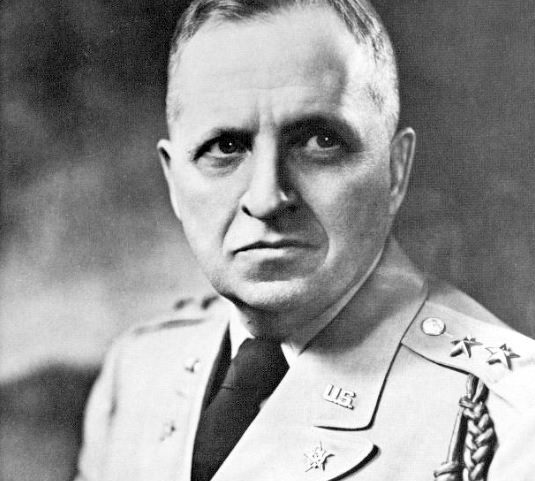Perspective: Under orders from a higher power — The Korean Armistice
By D. Bruce Lockerbie
Last week’s diplomatic incident in Korea’s Demilitarized Zone, when a young U.S. soldier crossed into North Korea “willfully and without authorization” according to the Pentagon, reminds us that “the Forgotten War” is not yet ended, even though July 27 marks the 70th anniversary of a truce signed on the Korean peninsula.
On that date, in 1953, at Panmunjom on the 38th parallel, delegates from warring nations met to declare a pause in combat. Representing the United Nations was an American named Lt. Gen. William K. Harrison Jr. Because of his unashamed religious faith and testimony, he became known worldwide as “the Bible-quoting general,” not always intended as a compliment by his political and pacifist critics.
Three years earlier, the People’s Democratic Republic of Korea invaded the Western-backed Republic of Korea (South Korea), which the United Nations voted to defend. Led by the United States and commanded by Gen. Douglas MacArthur, 6.8 million Americans served; fewer than 1 million remain alive today.
But MacArthur advocated action opposed by President Harry S. Truman and was stripped of his command. A military stalemate ensued, futile negotiations stalled and presidential candidate Dwight D. Eisenhower promised to go to Korea to resolve the conflict.
But who was Billy Harrison, two years behind Ike at West Point? As a cadet, then an officer — whether in peacetime or combat — Harrison was notable for his quiet but earnest Christian faith, disciplined by early morning Bible reading and prayer, yet his brothers-in-arms knew better than to mistake religious devotion for weakness.
World War II
Harrison and Eisenhower had been members of the War Plans Division, charged with reorganizing the Army’s high command immediately after the Pearl Harbor attack. Harrison produced the model eventually approved by President Franklin D. Roosevelt.
As assistant commander of the 30th Infantry Division, Harrison was fearless in battle, leading from his jeep through hedgerows and villages of Europe. Following D-Day, Harrison devised the plan to free Allied troops trapped on the Normandy peninsula. Later in the battle at Mortain, after an attack by “friendly fire,” he gathered his scattered forces to achieve victory, for which he was awarded the Distinguished Service Cross — the second highest decoration for military valor.
Harrison was more than a war hero, he was also a humanitarian. In April 1945, he and his task force came upon a train whose boxcars held 2,500 Jews abandoned by their concentration camp guards, eager to hide their guilt. According to the “Holocaust Encyclopedia,” “the 30th Infantry Division then initiated efforts to find shelter for the former prisoners so that they could be moved away from the filthy, jammed, evil-smelling railroad cars.”
Japan
After Japan’s defeat, MacArthur chose Harrison as chief of reparations, the nasty job of “getting even” for Japanese atrocities. Harrison had no desire for sheer revenge and appealed to MacArthur with an alternative — namely, distributing copies of the Bible or selected texts.
He also invited former prisoners of war, such as Louis Zamperini, Olympic runner and raft survivor, to return to Japan as evangelists. Among their converts was Capt. Mitsuo Fuchida, the pilot who had led the attack on Pearl Harbor.
Korean War
When the Korean War began, Harrison commanded the base at Fort Dix, New Jersey, preparing raw recruits for combat in Korea. Yearning for a battlefield role, he contented himself with making soldiers out of civilians and ending racial segregation in housing and training at Fort Dix — effectively throughout the U.S. Army.
His eventual assignment in Korea was disappointing. Sent to be a member of the United Nations truce team, he was frustrated because every session consisted of the enemy’s harangue and propaganda. But in May 1952, when Harrison became senior delegate, the pattern changed. Even The New York Times, hostile to his efforts, noted: “From the start of his tenure as a negotiator in Korea, General Harrison had a style of talking bluntly or not at all. He appeared in open-collar khaki shirts, refusing to wear a dress uniform to face opponents he regarded with contempt as ‘common criminals.’ He walked out of the truce tent in June 1952, leaving General Nam Il of North Korea flabbergasted.”
Refusing to change tactics, an even greater surprise awaited the Communists when Harrison led a second exit for three days, then for 10 days; on Oct. 8, 1952, Harrison and his team left for more than six months.
Worldwide media excoriated Harrison, whose purpose was to deprive North Korean and Chinese propagandists of an audience for their lies about who had instigated the violation of the 38th parallel.
By April 26, 1953, the North Korean/Chinese delegation chose serious bargaining, accelerated by Eisenhower’s election and his military record.
The signing ceremony three months later could not have been less dramatic, lasting only 12 minutes. Harrison jumped off a helicopter, saluted his UN guard, seated himself at the table — Nam Il at an adjoining table — and signed copies in English, Korean and Chinese. Then, he rose and left Panmunjom for the last time.
Newspapers around the world headlined the story. Lt. Gen. William K. Harrison Jr. treated his role with self-effacing modesty: He had merely done his duty to the best of his ability.
Retirement
After retirement in 1957, Harrison spent the next three decades as executive or trustee for religious organizations, including president of Officers’ Christian Fellowship and board member at The Stony Brook School, where his younger son, the late Terry Harrison, was both an alumnus and faculty member.
During World War II, Gen. Harrison expressed professional respect for the common German soldier — distinct from SS or other Nazi-politicized officers. Citing his contempt for Chinese and North Korean officials, one can only suppose what might have been his attitude toward policies of subsequent American presidents — Nixon through Biden — in dealing with Kim Il Sung and his successors, including Kim Jong Un.
No doubt, Billy Harrison would not have worn a tie for any of them either. He reported to a higher power.
D. Bruce Lockerbie, a longtime resident of the Three Villages, is the author of more than 40 books, including “A Man Under Orders: Lieutenant General William K. Harrison, Jr.” (Harper & Row, 1979).







